第3章 CHAPTER I.(2)
I ought to remark, that at this time, the University of Konigsberg was still highly privileged. To send a challenge was held honourable; and this was not only permitted, but would have been difficult to prevent, considering the great number of proud, hot-headed, and turbulent nobility from Livonia, Courland, Sweden, Denmark, and Poland, who came thither to study, and of whom there were more than five hundred. This brought the University into disrepute, and endeavours have been made to remedy the abuse. Men have acquired a greater extent of true knowledge, and have begun to perceive that a University ought to be a place of instruction, and not a field of battle; and that blood cannot be honourably shed, except in defence of life or country.
In November, 1742, the King sent his adjutant-general, Baron Lottum, who was related to my mother, to Konigsberg, with whom I dined at my grandfather's. He conversed much with me, and, after putting various questions, purposely, to discover what my talents and inclinations were, he demanded, as if in joke, whether I had any inclination to go with him to Berlin, and serve my country, as my ancestors had ever done: adding that, in the army, I should find much better opportunities of sending challenges than at the University. Inflamed with the desire of distinguishing myself, Ilistened with rapture to the proposition, and in a few days we departed for Potzdam.
On the morrow after my arrival, I was presented to the King, as indeed I had before been in the year 1740, with the character of being, then, one of the most hopeful youths of the University. My reception was most flattering; the justness of my replies to the questions he asked, my height, figure, and confidence, pleased him;and I soon obtained permission to enter as a cadet in his body guards, with a promise of quick preferment.
The body guards formed, at this time, a model and school for the Prussian cavalry; they consisted of one single squadron of men selected from the whole army, and their uniform was the most splendid in all Europe. Two thousand rix-dollars were necessary to equip an officer: the cuirass was wholly plated with silver; and the horse, furniture, and accoutrements alone cost four hundred rix-dollars.
This squadron only contained six officers and a hundred and forty-four men; but there were always fifty or sixty supernumeraries, and as many horses, for the King incorporated all the most handsome men he found in the guards. The officers were the best taught of any the army contained; the King himself was their tutor, and he afterwards sent them to instruct the cavalry in the manoeuvres they had learnt. Their rise was rapid if they behaved well; but they were broken for the least fault, and punished by being sent to garrison regiments. It was likewise necessary they should be tolerably rich, as well as possess such talents as might be successfully employed, both at court and in the army.
There are no soldiers in the world who undergo so much as this body guard; and during the time I was in the service of Frederic, I often had not eight hours' sleep in eight days. Exercise began at four in the morning, and experiments were made of all the alterations the King meant to introduce in his cavalry. Ditches of three, four, five, six feet, and still wider, were leaped, till that someone broke his neck; hedges, in like manner, were freed, and the horses ran careers, meeting each other full speed in a kind of lists of more than half a league in length. We had often, in these our exercises, several men and horses killed or wounded.
It happened more frequently than otherwise that the same experiments were repeated after dinner with fresh horses; and it was not uncommon, at Potzdam, to hear the alarm sounded twice in a night.
The horses stood in the King's stables; and whoever had not dressed, armed himself, saddled his horse, mounted, and appeared before the palace in eight minutes, was put under arrest for fourteen days.
Scarcely were the eyes closed before the trumpet again sounded, to accustom youth to vigilance. I lost, in one year, three horses, which had either broken their legs, in leaping ditches, or died of fatigue.
I cannot give a stronger picture of this service than by saying that the body guard lost more men and horses in one year's peace than they did, during the following year, in two battles.
We had, at this time, three stations; our service, in the winter, was at Berlin, where we attended the opera, and all public festivals: in the spring we were exercised at Charlottenberg; and at Potzdam, or wherever the King went, during the summer. The six officers of the guard dined with the King, and, on gala days, with the Queen. It may be presumed there was not at that time on earth a better school to form an officer and a man of the world than was the court of Berlin.
I had scarcely been six weeks a cadet before the King took me aside, one day, after the parade, and having examined me near half an hour, on various subjects, commanded me to come and speak to him on the morrow.